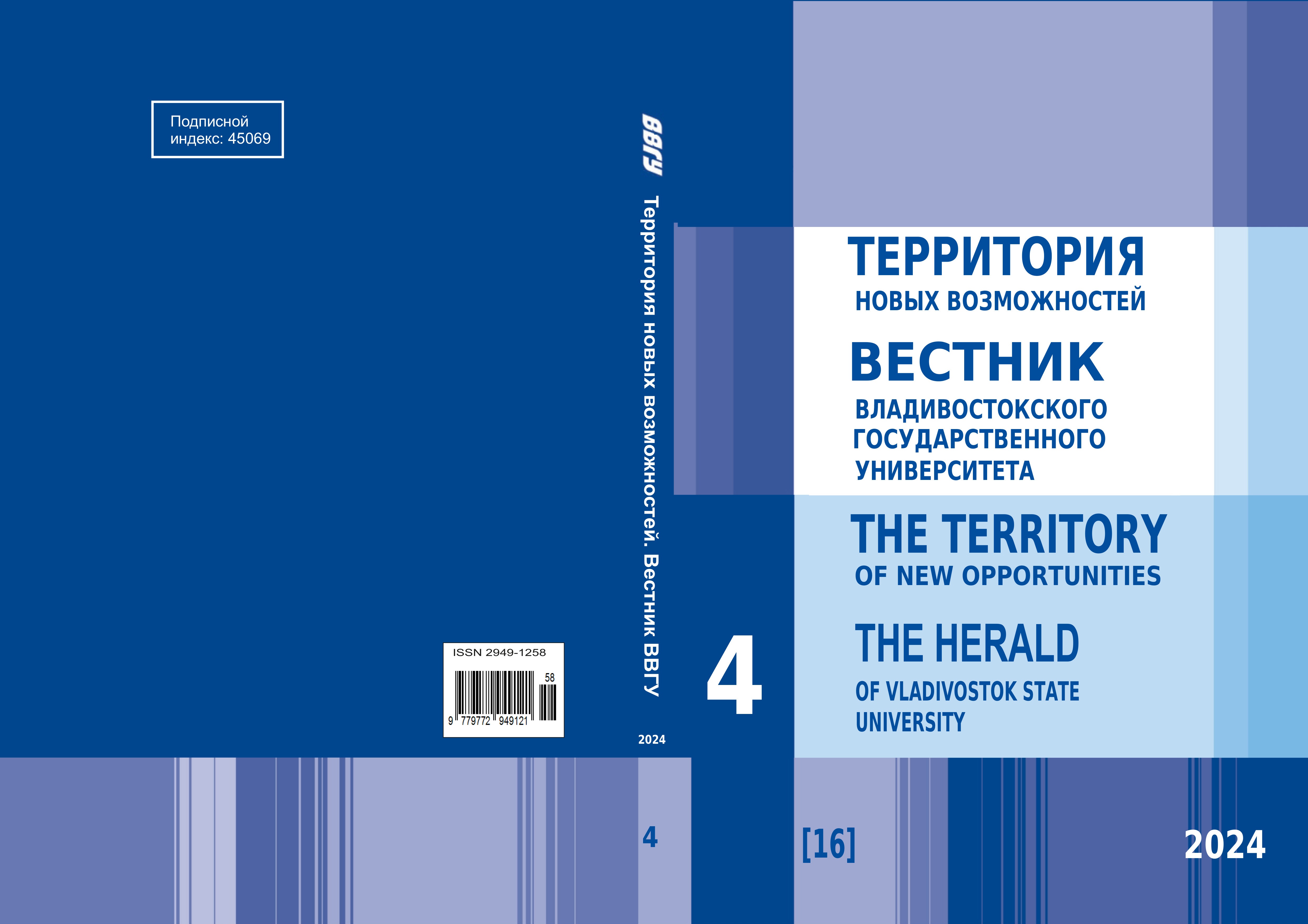employee
Russian Federation
The article discusses theoretical aspects of chatbot technology application in education, with an emphasis on terminology. The research aims to thoroughly examine existing concepts and develop an approach for incorporating chatbots into teaching and learning. By analyzing chatbot terminology, the study provides a better understanding of the role of chatbots in educational settings. It also offers an overview of chatbot use cases from both university institutions and the private sector. The successful examples demonstrate how chatbots can enhance both curricular and cross-curricular learning experiences, support the educational process, facilitate interaction between students and teachers, and increase motivation and creativity. The research is based on a review of academic and methodological literature. To obtain the results, the methods of theoretical analysis, synthesis, systematization, comparison and specification were employed. The study reveals effective practices and a wide range of possibilities for the implementing chatbots in education, highlighting their potential to improve the quality of teach- ing and learning. The study also introduces a new concept of learning with chatbot technology. The results obtained can be applied in both theoretical and practical pedagogy.
chatbot, digitalization of education, educational technologies, interactive teaching and learning, chatbot application, automation of educational process.
1. Titova S.V., Staroverova M.V. Stages of digitalization of language education in the XX–XXI centuries. Bulletin of Moscow University. Series 19. Linguistics and intercultural communication. 2023; (3): 31. DOI: https://doi.org/10.55959/MSU-2074-1588-19-26-3-2; EDN: https://elibrary.ru/UBIXJF
2. Kapustina L.V., Ermakova Y.D., Kalyuzhnaya T.V. Chat GPT and education: eternal confrontation or possible cooperation? Concept. 2023; (10): 119–132. URL: https://doihttps://doi.org/10.24412/2304-120X-2023-11099
3. Esina L.S. Implementation of chatbots in teaching and learning foreign languages. World of science, culture, education. 2024; 2 (105): 201–204. URL: https://doihttps://doi.org/10.24412/1991-5497-2024-2105-201-204 EDN: https://elibrary.ru/HASKMD
4. Grechikhin S.S. Distance learning using educational chatbots in modern messengers. Baltic Humanitarian Journal. 2020; 9 (3 (32)): 66–68. DOI: https://doi.org/10.26140/bgz3-2020-0903-0014; EDN: https://elibrary.ru/YIHQUJ
5. Kooli C. Chatbots in education and research: a critical examination of ethical implications and solutions. Sustainability. 2023; (15). URL: https://doi.org/10.3390/su15075614 EDN: https://elibrary.ru/VPWOJZ
6. Aleedy M., Atwell E. Using AI chatbots in education: recent advances, challenges and use case. Artificial intelligence and sustainable computing: proceedings of ICSISCET. 3rd International Conference on Sustainable and Innovative Solutions for Current Challenges in Engineering & Technology ICSISCET. 13–14 November 2021. Springer Singapore; 2021. P. 661–675. URL: https://doi.org/10.1007/978-981-19-1653-3_50
7. What are bots – definition and description. Official website of Kaspersky Lab. URL: https://www.kaspersky.ru/resource-center/definitions/what-are-bots
8. Simakova A.E., Alekseeva G.A. Using a chat bot in instant messengers. Young Russia. Collection of materials of the XII All-Russian, scientific and practical conference of young scientists with international participation. Kemerovo; 2020. URL: https://https://science.kuzstu.ru/wpcontent/Events/Conference/RM/2020/RM20/pages/Articles/21124.pdf EDN: https://elibrary.ru/CKFFCM
9. Salavatova Y.V., Kostomarova A.S. Technologies for creating chatbots using online services / Yu.V. Salavatova, A.S. Kostomarova. Science of the young is the future of Russia. Collection of scientific articles of the 4th International Scientific Conference of Promising Developments of Young Scientists. In 8 volumes. 2019: 158–162. EDN: https://elibrary.ru/UJDQLN
10. Ibragimova Z.M., Tkachenko A.L., Dzhamaldinova M.A. Using chatbots in the educational process. Pedagogical Journal. 2022; 12 (6A (II)): 741–746. DOI: https://doi.org/10.34670/AR.2022.98.45.029; EDN: https://elibrary.ru/OYWICR
11. Kadeeva O.E., Syritsyna V.N. Chatbots and features of their use in education. Computer science at school. 2020; (10): 45–53. URL: https://doi.org/10.32517/2221-1993-2020-19-10-45-53 EDN: https://elibrary.ru/UQLYTR
12. Glotova M.Y., Samokhvalova E.A. Prospects for the introduction of chatbots in education. School of the Future. 2020; (4): 72–87. EDN: https://elibrary.ru/SFXMGY
13. Sysoev P.V., Filatov E.M. Chatbots in teaching a foreign language: advantages and controversial issues. Bulletin of TSU. 2023; (1): 66–71.
14. Milyavskaya N.B. Practical recommendations for the use of chatbots in the process of teaching foreign languages. Scientific and methodological electronic journal "Kaliningrad Bulletin of Education". 2023; 4 (20): 112–120. URL: https://koirojournal.ru/realises/-g2023/26dec2023/kvo411/ EDN: https://elibrary.ru/TAAGTM
15. Avramenko A.P., Akhmedova A.S., Bulanova E.R. Chatbot technology as a means of forming foreign language grammatical competence in independent learning. Bulletin of Tambov University. Series: Humanities.2023; 28 (2): 386–394. DOI: https://doi.org/10.20310/1810-0201-2023-28-2-386-394; EDN: https://elibrary.ru/ABFJQP
16. Bikkulova O.S., Ivkina M.I. Chatbot in the methodology of teaching Russian as a foreign language. The World of the Russian Word. 2021; (1): 91–96. DOI: https://doi.org/10.24411/1811-1629-2021-1-91-96; EDN: https://elibrary.ru/ZOVLFB
17. Igonina E.V. On the features of organizing distance testing of students using chatbots. EScio. 2020; 12 (51). URL: https://cyberleninka.ru/article/n/ob-osobennostyah-organizatsiidistantsionnogo-testirovaniya-obuchayuschihsya-s-pomoschyu-chat-botov
18. Tishchenko A.A. Development of a chatbot as a virtual assistant to motivate students to obtain a profession. Ergodesign. 2021; 2 (12): 141–144.
19. Markova G.A. Educational potential of the digital interlocutor program "chatbot" in managing the development of students' creativity. Pedagogical Journal. 2022; 12 (6A (II)): 850–856. DOI: https://doi.org/10.34670/AR.2022.79.80.103; EDN: https://elibrary.ru/WAOUDQ
20. A bot with artificial intelligence has joined the Admissions Committee of the North-West Institute of Management of the Russian Presidential Academy of National Economy and Public Administration. URL: https://spb.ranepa.ru/news/v-sostav-priyomnoj-komissiisziu-ranhigs-voshyol-bot-s-iskusstvennym-intellektom/
21. Randall N. A survey of Robot-Assisted Language Learning (RALL). ACM Transactions on Human-Robot interaction. 2020; 9 (1): 1–36. URL: https://www.researchgate.net/-publication/337913193_A_Survey_of_Robot-Assisted_Language_Learning_RALL
22. Lavrinenko I.Y. Using GPT chatbots in teaching English at a non-linguistic university: theoretical aspect. Bulletin of the Siberian Institute of Business and Information Technology. 2023; 12 (2): 18–25. URL: https://doi.org/10.24412/2225-8264-2023-2-18-25 EDN: https://elibrary.ru/UIAZUW
23. Chatbot of St. Petersburg State University will answer questions about admission to the University. URL: https://abiturient.spbu.ru/news/chat-bot-spbgu-otvetit-na-nbsp-voprosyo-nbsp-postuplenii-v-nbsp-universitet/





